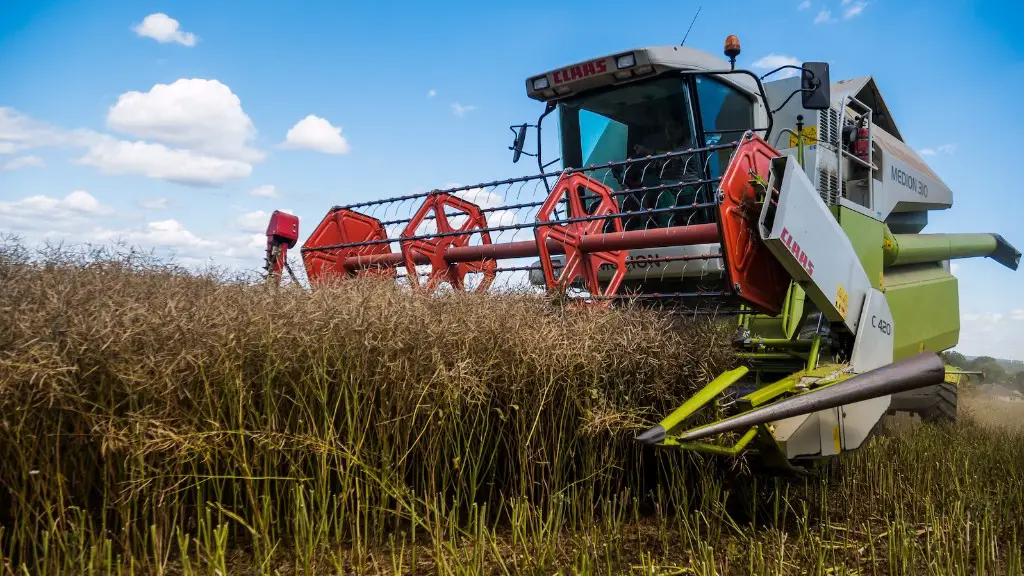Agriculture is one of the few industries exempt from overtime laws, which have largely been created to protect workers from exploitation. The exemption is due to the unique nature of the industry and the way it is managed. The primary reason why agriculture is exempt from overtime is that it is a fluctuating production system that requires a flexible workforce. The unpredictable nature of the industry requires workers to often work unpredictable hours and be available when the need arises. This type of work system doesn’t fit well within the traditional overtime structure.
Additionally, farming is an activity traditionally conducted on family-owned land and often times same-family members are working together, causing the labor-management relationship to be more familial than strictly business. Since the overtime laws were designed to prevent workplace exploitation rather than punish family involvement, agriculture is exempt from overtime. Similarly, not all agricultural workers are employees. Many are independent contractors, who are not subject to overtime laws either.
Thirdly, agricultural work is seasonal in nature, with some areas requiring workers for only a few months of the year. During these times, the labor needs are unpredictable and usually peak during certain days and hours. If overtime laws were applied to agriculture, it would make it very difficult for the industry to meet its labor needs in a timely manner. As well, to pay overtime at certain times would generate an over capacity of labor while driving up the costs of other times when the labor is not required.
Finally, most agricultural workers do not receive benefits like healthcare, vacation, or other traditional labor protections. Without these labor protections, it would be difficult to determine what constitutes fair overtime pay. This uncertainty, combined with the fluctuating nature of the labor market, makes the application of overtime regulations to agricultural work impractical.
Economic Impact
The economic impact of agricultural exemptions from overtime is not insignificant. The exemption from overtime encourages farmers to hire many workers to cover the seasonal peaks in labor, making it possible for them to pull through difficult times. This allows them to maintain their competitive edge in the market and provide competitively priced products to the general public. Additionally, it results in more economic security and opportunities for workers. As a result, agricultural overtime exemptions have been cited as a driving force in poverty reduction and economic growth in developing countries.
Furthermore, the exemption from overtime allows farmers to schedule more variable and staggered start and end times for their employees, making it possible to accommodate different work schedules. This has been particularly beneficial in rural areas where public transportation is limited. This kind of work schedule also has implications for environmental protection as fewer cars need to be driven to and from farm sites.
On the whole, while there are some drawbacks, such as lack of labor protection, agricultural overtime exemptions also have important benefits. In a broader sense, they help promote economic growth, reduce poverty, and benefit the environment.
International Perspective
Agricultural overtime exemptions are not unique to the United States. Many other countries have similar laws in place. In the European Union, for example, the European Working Time Directive exempts workers in the agricultural sector from overtime provisions as long as their hours conform to economic and technical requirements. Similarly, Australia exempts agricultural workers from its overtime laws.
These laws serve a similar purpose to those in the United States and can have an even greater impact in developing countries where poverty is more widespread. In these countries, the flexibility provided by overtime exemption can help farmers meet their labour needs, while providing more job opportunities to local citizens.
Agricultural exemptions from overtime laws are a global phenomenon that exist in many countries. They provide an important tool for farmers by allowing them to remain competitive in the global market, while providing job opportunities and economic security to citizens living in rural areas.
Local Perspective
The effects of agricultural overtime exemptions can be even more acute at the local level. In many rural areas, agricultural work is often the only form of employment available to many of the local citizens. Without these exemptions, many farmers would simply be unable to keep up with their labor needs. As a result, overtime exemptions from agriculture can have an enormous impact on local economic growth.
In addition, overtime exemptions can also potentially provide protections for agricultural workers, who may otherwise lack access to important health or safety protections. By exempting agricultural workers from overtime, farmers are able to provide flexible working hours and offer competitive wages, providing protections from worker exploitation. This can create more stable economic conditions for local citizens.
Agricultural overtime exemptions at the local level can have a positive effect in many ways, from promoting economic stability to providing job opportunities and even providing certain protections for workers. In many rural areas, these exemptions can be the difference between a vibrant, successful local economy and one that struggles to stay afloat.
Legal Context
Agricultural overtime exemptions are often seen as a form of discrimination. While the exemptions provide an important tool for farmers to manage their labor needs, they also limit protections for agricultural workers in certain areas, such as labor rights and wage and hour standards. As a result, many have called for legislation to be enacted to provide greater protections for agricultural workers.
The legal context of agricultural overtime exemptions is complex and varies from country to country. In the United States, there are several laws that provide some protections for agricultural workers, such as the Fair Labor Standards Act and the Migrant and Seasonal Agricultural Worker Protection Act. In the European Union, the Working Time Directive and other labor regulations provide similar protections. While these laws provide some protections, they do not provide adequate coverage for all agricultural workers.
In the end, the legal context of agricultural overtime exemptions is complex and varies from country to country. While the exemptions provide an important tool for farmers to manage their labor needs, there is still significant room for improvement. More work is needed to ensure that all agricultural workers are afforded full rights and protections under the law.
Conclusion
Agricultural overtime exemptions are a unique and important tool for farmers to manage their workforce. The exemptions are in place due to the unique nature of the industry and the way it is managed, as well as its unpredictable labor needs. While the exemptions can provide important economic benefits, they also come with a certain amount of controversy. Ultimately, more work is needed to ensure that agricultural workers are given all the rights and protections they deserve under the law.




